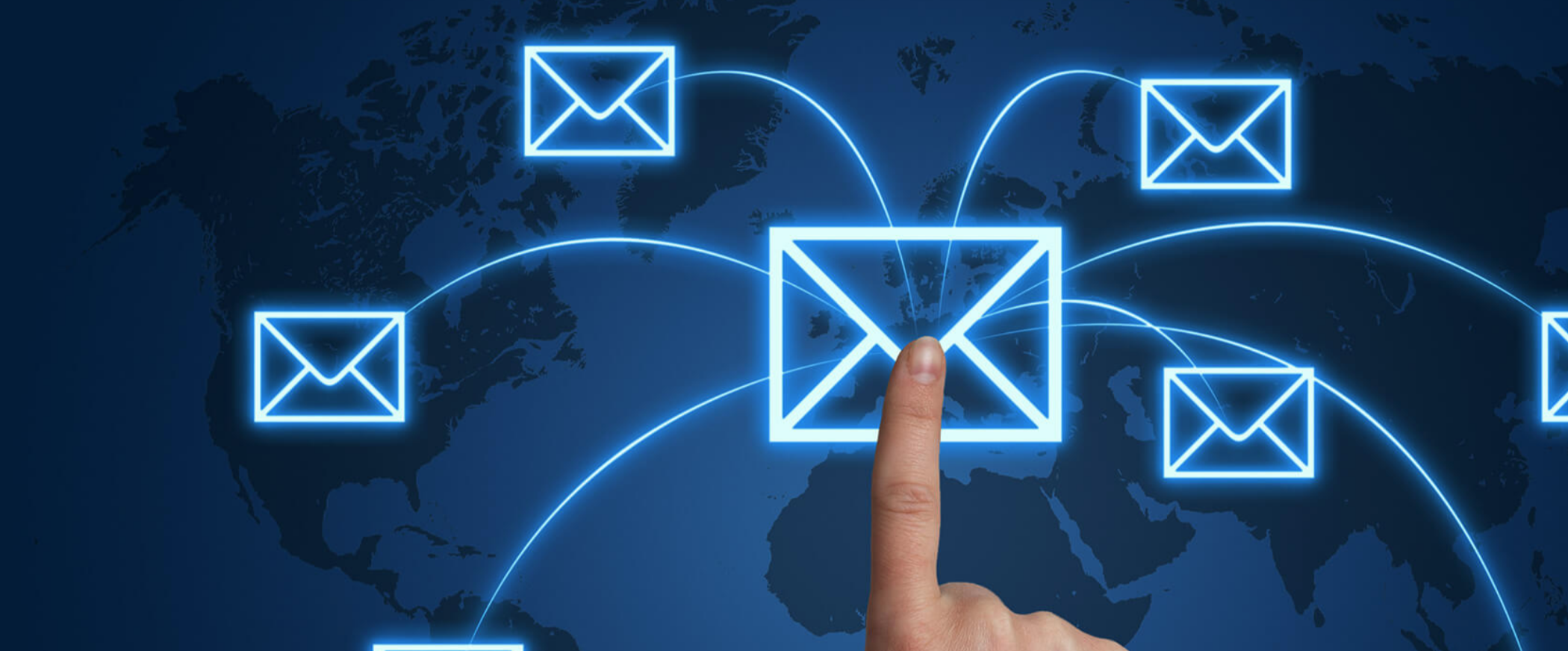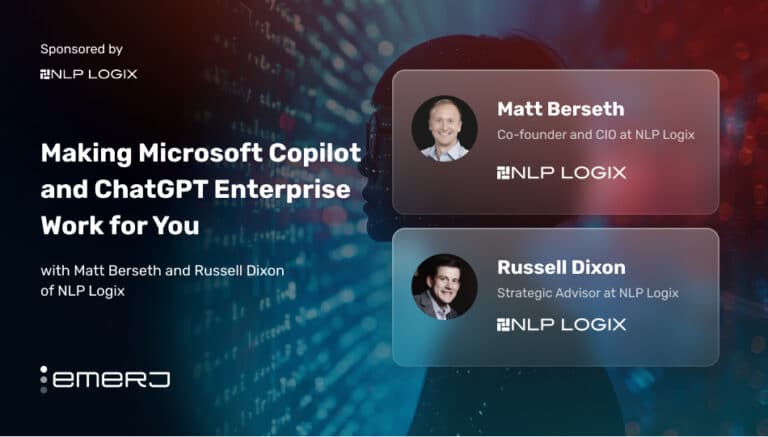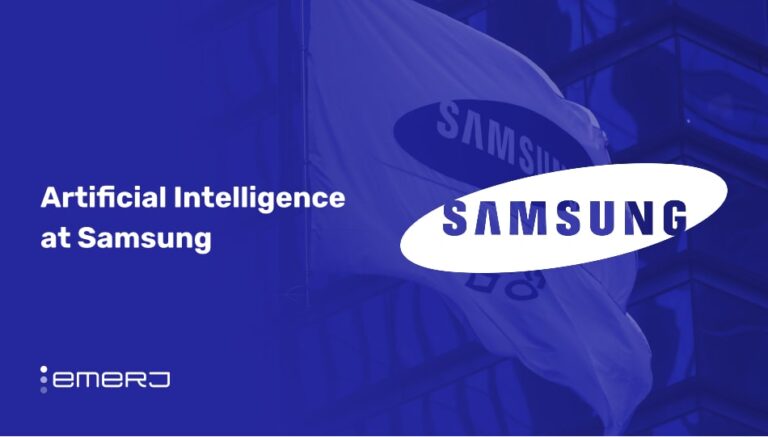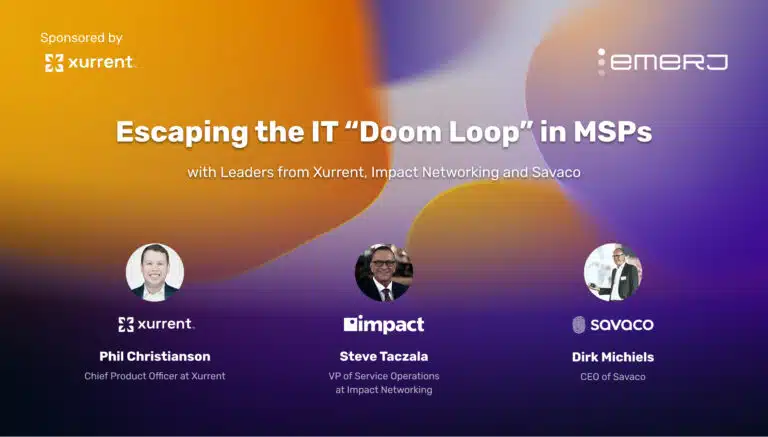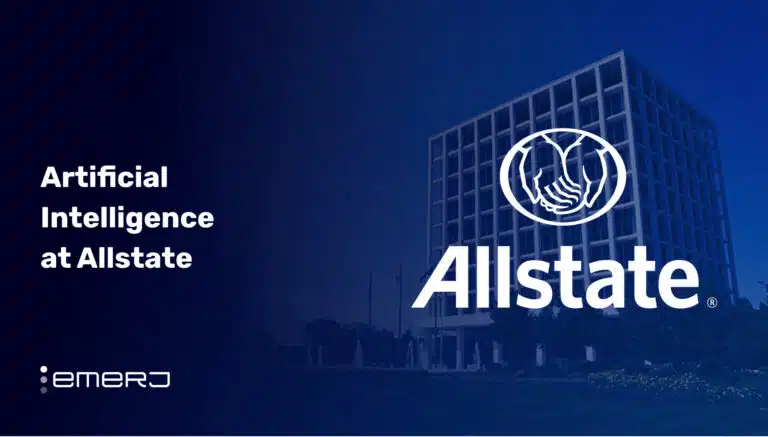Despite the emergence of chat apps and social media over the past decades, email has continued to thrive. A 2017 study from Radicati marketing research claimed that email accounts were expected to reach 4,920 million by the end of 2017, a number that has not changed much since 2013, and that about 100 billion business emails are sent daily.
As personalization and relevance become more and more critical for email marketers, machine learning is being applied to segmentation, marketing timing, and even copywriting – and we wanted to unearth these trends by examining companies who claim to be at the intersection of machine learning and email marketing.
In this article, we aim to answer the following questions for our business readers:
- What are the different features and capabilities of some of the more popular machine learning-enhanced email marketing tools on the market?
- How is artificial intelligence being used to enhance the effectiveness of email marketing today?
We’ll start off by examining the most commonly touted benefits of AI-enhanced email marketing tools, then we’ll examine 5 email marketing vendors and compare their various features.
The Promise of Machine Learning for Email Marketing
Why is email still important?
Because people still use email (Radicati research claims that hundreds of billions of emails are sent per day) – particularly at work. With the more and more new communication channels (mobile apps, Slack, social media, project management software, Skype, etc), email may not be able to rest on its laurels if it wants to remain dominant in the decade to come.
Marketers must ensure they consider the messaging that resonates with the right audience, release their communications at the right time, and be able to learn more about their market and better serve them. Based on our examination of many email marketing service providers, here are the AI-based capabilities that seem to be most important for the future of email:
Increasing Engagement (Opens, Click-throughs)
An established practice among marketers is to manually test combinations of subject line, body copy and images to determine which email would perform best. This was a tedious, labor-intensive process, and highly prone to human error.
Today, new AI technology is able to quickly generate combinations of content. What’s more, AI can predict which content will bring in the best results – in terms of conversions and revenues. This new process cuts so much time from A/B testing and allows marketers to mix-up more combinations of the messaging elements.
Calibrating Email Timing (“When”)
Send people frequent emails, they might unsubscribe. Send too few, companies risk losing out to the competition. AI takes the guesswork out of figuring out the frequency and timing of email releases by automating send times and days based on customer’s activity history.
AI technology can even be set up to determine time zones, downtimes, personal patterns and habits of the email recipients. At the end of the day, it is important to remember that the recipients are human beings, each one with different habits and preferences from the other.
Promotion Personalization (“What”)
Based on a customer’s history and habits, AI will be able to determine what type of promo works best with each customer, whether it is product recommendations, discounts (and how much), free products or services, free shipping or rebates.
For instance, when a customer abandons a shopping cart, AI can send an email that retargets the customer, either to reconsider buying the product or recommends another product from the same or another brand. All emails will have a call-to-action, lead to a landing page where the subscriber can purchase an item. The AI-honed product recommendation improves the probability of the customer making a purchase.
Finding New Segments (“Who”)
Machine learning algorithms give marketers the power to intelligently group their users based not just on age, geography, or purchase history, but on specific behavioral cues. These nuanced behavior patterns (some of which might have evaded human analysts unable to tune into hundreds or thousands of data points) can potentially be turned into entirely new and distinct marketing segments, and treated with new, customized campaigns.
Comparing 5 AI Email Marketing Vendors
Below we examine five email marketing technology providers who claim to be integrating machine learning.
Phrasee
Total funds raised: US$1.36 million
Year founded: 2015
HQ location: London
Number of employees: 11-50
Target user: Enterprises
Type(s) of data processed: Email subject lines, email body copy
Known clients: Gumtree, Domino’s, Virgin Holidays
Phrasee claims to use algorithms in order to generate subject lines, body copy, and calls-to-action to encourage higher click-through rates and engagement on email marketing. The app is said to use language that matches the client company’s “voice”, by looking at hundreds of emotions, sentiments, and phrases to predict what the company’s audience will respond to.
In their 1-minute marketing video below, Phrasee explains how its software generates new (and purportedly more responsive) subject lines for email marketing:
Phrasee claims that its language analysis tools and language generation algorithms work to understand a brand’s voice and generate human-sounding, machine-optimized emails that drives response. It is not clear, however, how much time or data is needed before the app can generate this natural language, or the kind of integrations that are required to do this training.
In one of the company’s featured case studies, Phrasee claims to have helped online classified ads client Gumtree improve open rates by 35 percent and click rate by 44 percent. Pizza brand Domino’s, another Phrasee client, reported 26% higher open rate since using Phrasee-powered email subject lines.
The Phrasee website does not explain whether the marketer is responsible for using the best content to use or if Phrasee itself automatically deploys the top content recommendations (or split-tests them) and generates reports. We presume that the marketer has some control over approval of material.
At the helm of Phrasee AI activities is Chief Scientist Dr. Neil Yager, who holds a doctorate in Computer Science, and is responsible for much of the company’s technical developments. The company in 2016 raised funding from investors Next 15 and Galvanize Capital.
ZetaHub
Total funds raised: $380 million
Year founded: 2007
HQ location: New York
Number of employees: 1,001-5,000
Target user: Fortune 1000 and middle market brands
Type(s) of data processed: Customer relationship management data, emails, display advertising, cross-channel marketing, social media marketing, analytics
Known clients: Petco, Sprint, AIG, Ralph Lauren, British Airways and Hanes (it is unclear if all of these brands are using ZetaHub’s AI capabilities, or merely it’s broader marketing suite)
ZetaHub, developed by customer lifecycle management marketing company Zeta Global, is a platform that offers email marketing as part of it’s product suite.
Using the marketer’s database of customer profiles, the email marketing app is able to group or segment email recipients and select the best audience for a campaign. Personalization of the emails is done by determining the best timing, channel (other than email), and message, based on the audience’s online behavior within websites, emails and mobile apps.
Zeta Global CEO David Steinberg explains provides some basic context about AI in marketing during this 2017 interview on Fox Business:
Clients who deploy the ZetaHub platform become part of a community of users where they can share and learn from the experience of other companies through online forums.
In one case study, the company claims to have determined the correct cadence in its retail client’s email releases, thereby improving open rate by 29 percent, click rate by 6 percent, unique click rates by 4 percent, click to open rate by 14 percent increase, unsubscribe rate by 0.07 percent. The company also featured a study claiming that an auto parts client, achieved a 10 percent rise in conversion after a 10-day A/B/C/D testing was conducted in relation to the timing of email releases.
David A. Steinberg serves as Chairman and CEO, while Co-founder John Sculley served as CEO of Apple for more than 10 years. Chief Information Officer Dr. Jeffry Nimeroff holds a doctorate degree in Computer and Information Science.
The company has been able to raise funding from 10 investors in five rounds since 2012, has had valuation over $1 billion since 2017.
Albert
Total funds raised: $42 million
Year founded: 2010
HQ location: New York
Number of employees: 51 – 100
Target user: Agencies, Business-to-customer brands
Type(s) of data processed: emails
Known clients: Harley-Davidson, Cosabella, Dole Asia, EVISU, Made.com
Named after famous physicist Albert Einstein, Albert by Albert Technologies Limited is said to work at all stages of the customer lifecycle, not merely a single point in digital marketing. This tool encompasses multichannel campaigns from paid search to social media, programmatic display, and email.
According to the company website, the application builds, optimizes, and measures digital marketing campaigns through the entire funnel, from brand awareness to lead generation, consideration, purchase, and loyalty. It can also be optimized to all aspects of digital marketing campaigns, including budget allocation, audience and geographic targeting, creative matching and sequencing, and bid management, among others.
The company, in its website, claims to have helped boost Harley-Davidson’s sales by 40 percent in 2016 using Albert, which prompted some of the client’s U.S. and global franchises to start using the app. In 2017, lingerie client Cosabella achieved a 336% return on ad spend, and a 155% increase in revenue directly attributed to Albert. Jeans designer EVISU also revealed that Albert boosted its digital sales by 500 percent through its year-long digital marketing efforts in the U.S., UK, Canada, Australia, and Singapore.
The leadership team consists of experts in artificial intelligence, data analysis, statistics, applied mathematics and behavioral sciences. CEO Or Shani is a member of the Forbes Technology Council and the Young Presidents Organization.
Chief Technology Officer Tomer Naveh has a background in software and product development. He holds an MBA degree and MSc in Computer Science as well as undergraduate degrees in Mathematics and Computer Science.
The company raised funding in 2015 through an initial public offering and so far has not needed additional capital from external investors.
Persado
Total funds raised: $66 million
Year founded: 2012
HQ location: New York
Number of employees: 201 – 500
Target user: Enterprises
Type(s) of data processed: Email
Known clients: Dell, Neiman Marcus Last Call, Sears, StubHub, Staples, 1-800-Flowers, American Express, Citi, Humana, Intuit Turbotax, Travelocity, Air Canada, Expedia, Verizon, Vodafone, among others
Persado Pro Email is AI software that is said to generate more email subject lines that will resonate better with recipients by using language that appeals to emotions, according to the mother company Persado, resulting in increased engagement metrics from the target audience.
One feature of this application is the client’s control over the language and style to match the brand voice. Style filters within the app allow the client to change the emotions in the message, whether it is bold, mild, trendy or classic. The client can also add or remove symbols, adjust text case, and edit subject lines.
Persado’s 2-minute marketing video explains its basic value proposition, along with highlighting features and showing screen shots of the application in action:
Persado claims that the app generates analytics to determine which phrases are most used and most effective to strengthen email subject lines of and help the client improve email performance.
At the helm of the Persado team are mathematicians, computer/data scientists, and engineers who lead the AI aspect of the company offerings. CEO and co-founder Alex Vratskides has applied mathematics and graduate engineering degrees and background, while co-founder senior vice president for product and engineering Assaf Baiu, spearheads vision and advancements of Persado’s products. Chief Data Scientist Panagiotis Angelopoulos, Ph.D., oversees the data science and algorithmic research and development of the company.
Pro Email is only one of the several solutions Persado offers, including enterprise and social media solutions. Persado’s last funding round was in April 2016, but based on its gamut of clients in high-performance industries, it looks like the company is thriving.
Act-on
Total funds raised: $73.5 million
Year founded: 2008
HQ location: Portland, Oregon
Number of employees: 51-200
Target user: Enterprises and SMBs
Known clients: VMWare, Six Flags, New York University, Avery Dennison, 23andMe, Progressive
Act-On by Act-On Software, Inc. is a predictive email technology that is part of a more robust digital marketing platform which features easy-to-use editors, a reporting tool, landing page and form composers, webinar creators, lead generation, and adaptive segmentation tools, among others.
Its email marketing tool is a drag-and-drop composer with automated A/B testing tools. Detailed engagement metrics allows users to examine the impact of emails and understand audience habits better.
One of its success stories is how the Physician’s Insurance used Act-On to personalize its communications and retain customers, as a result increasing open rates by 31 percent and helping keep more than 95 percent of customers. Another client, the Professional Golfers Association of America had the challenge of connecting better with its fans.
We were unable to find anyone on the Act-On technical team with a robust academic or business background in artificial intelligence, which we consider to be an indicator of relatively poor AI capability within the firm. LinkedIn shows that the company has downsized by 40% between 2016 and 2018, evidence of some rather larges changes underway at the company.
Act-On helped by integrating with Microsoft Dynamics and PowerBI, resulting in 75 percent email open rates, 70 percent conversion rates, and record-breaking ticket sales 10 months before the event. Both examples above are featured in greater depth in Act-on’s “case studies” page, though it’s unclear how much of this actually involves artificial intelligence.
Act-On’s professional package consists of a marketing automation platform for growing businesses and is priced $900 per month. The Enterprise package, priced at $2,000 monthly.
The company lacks the deep math and science-based leadership that most of its competitors have, something that is critical especially since the company is engaged in powered products. This isn’t a surprise, as Act-On was founded well before machine learning became a viable technology for most modern marketing applications.
Concluding Thoughts on Machine Learning in Email Marketing
As the competition for email marketing and marketing automation continues to heat up, marketers are being pushed to do more than bare-bones personalization (such as putting a name in a subject line). AI will help lead the way to new vistas of personalization, helping marketers the determine the best messaging, best timing, and the best offering to the individual customer.
While it isn’t clear which machine learning-related email marketing features will become most common in the years ahead – it is clear that personalization will only beget more personalization. Just as all eCommerce stores have to improve their delivery speed thanks to the pressure of Amazon and other big online retailers, email marketers will have to ensure their relevance as a top priority if they expect to stay in the inboxes of their users.
In some ways, this could lead to an entirely new level of hyped-up subject lines and hyper-targeted sensationalism from email promotions. On the other hand, generic “email blasts” will likely become a thing of the past (at least for most large and sophisticated firms) as AI helps users segment, test, and roll out different campaigns to unique customer types.
The historical trend in email marketing has been from more to less spam, and from less to more personalization, and we suspect that machine learning will help keep both these trends rolling forward.
We see the following machine learning applications as becoming more and more the norm in email marketing:
- Automated copywriting, particularly for subject-lines and short call-to-action text, where a machine doesn’t need to re-write an entire article or long email message
- Automated A/B split testing, rolling out tests as an email is sent, sending the bulk of the recipients to the version of the email that performed best with an initial sample set of customers
- The use of third-party data to enhance targeting and personalization
On the AI side, as the technology companies develop more machine learning tools and interfaces, they are faced with two challenges.
The first is leveraging machine learning capabilities, combining a myriad of marketing tasks and developing one cohesive interface with the goal of achieving higher conversion rates and revenues. This development process requires deep AI expertise and time. We are only seeing the early phase of AI development in advertising and marketing but can expect more functionalities to be available in the future.
It’s not easy to hire and retain machine learning talent (as I’ve written about in length as my much longer article on AI enterprise adoption), and when Facebook or Google with pay AI grads huge salaries right out of school, it’s very challenging for more niche marketing firms to compete. This is why we at Emerj like to see AI talent among the founding team members in a marketing startup – people with equity and early vision in the company are less likely to get pulled to Google, and more likely to do good work in hiring more machine learning talent.
The other challenge is around the user experience and user interface of artificial intelligence. The AI developers have the formidable task of making the apps intuitive and easy enough to use so that non-AI professionals can maximize the tools and still connect with their audience. This is uncharted territory, and it’s not clear how tasks like data cleaning and algorithm tuning will be made accessible to people without experience in data science.
Header image credit: Search Engine Land


